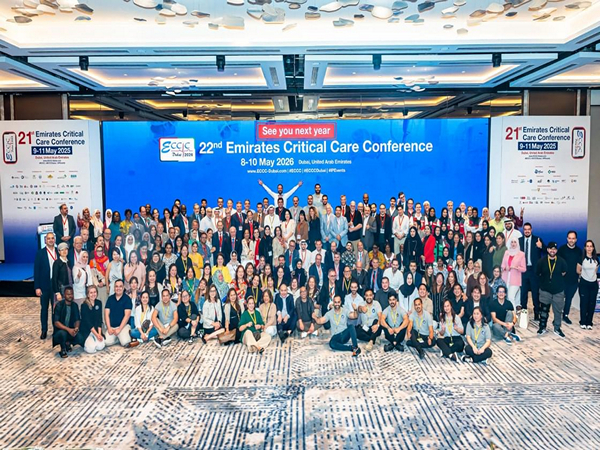UAE's Top Critical Care Summit Urges Boosting Professional Readiness of Healthcare Cadres

Dubai, a city synonymous with innovation and progress, recently played host to a significant event in the medical field—the 21st UAE Critical Care Conference and the Second World Summit of the World Federation of Intensive Care Communities. Organised by Info Plus Events, this landmark conference concluded on May 11, 2023, at the luxurious InterContinental Festival City Hotel. Over the course of three days, the event attracted more than 2,000 healthcare professionals from around the globe, all eager to engage in discussions that would shape the future of critical care medicine.
The conference served as a vital platform for dialogue on the pressing need to enhance professional expertise among staff members working in intensive care units (ICUs). This focus on continuous improvement is paramount, especially in an era marked by rapid advancements in medical technology and treatment protocols. Attendees were encouraged to examine recent global medical advancements and procedures related to the management of severe conditions and traumas. By doing so, healthcare professionals can better prepare themselves for the complexities of modern critical care.
Hussein Al Rahma, the Chairman of the Conference, expressed his satisfaction with the outcomes of the event during an interview with the Emirates News Agency (WAM). He noted that the conference concluded with a series of key recommendations that emerged from productive debates and extensive sharing of insights among participants. One of the primary recommendations was the necessity for ongoing training initiatives tailored specifically for healthcare professionals in critical care medicine. This approach ensures that practitioners remain aligned with the latest scientific advancements, thereby enhancing their skills and ultimately improving patient outcomes.
The emphasis on sustainability in healthcare was another critical theme that emerged from the conference discussions. Attendees recognised that maintaining high-quality healthcare delivery and rapid responsiveness is essential for effective patient care, particularly in intensive care settings. The recommendations included the establishment of specialised annual workshops and conferences dedicated to staying abreast of contemporary advancements in critical care. These events would not only facilitate the sharing of expertise among professionals but also foster a sense of community within the field.
Moreover, the conference highlighted the importance of collaboration and coordination among local and regional governing bodies, as well as international health organisations. This interconnectedness is vital for ensuring effective communication and a coordinated response during emergencies in intensive care environments. By strengthening these frameworks, healthcare systems can better navigate the complexities of critical care, ultimately leading to improved patient outcomes.
As the first conference of its kind in the Middle East and North Africa, and the third globally, the event featured an impressive roster of 275 speakers, including 130 international experts and 80 local speakers. The breadth of knowledge shared during the conference was reflected in the 381 lectures and working papers presented across 77 scientific sessions. Additionally, participants engaged in four scientific workshops, four training courses, and six seminars tailored to the industrial sector, further solidifying the conference's commitment to continuous development in this vital medical specialty.
The topics discussed at the conference encompassed a wide range of issues pertinent to critical care. These included sepsis, infections, fluid management within the ICU, renal issues such as acute kidney injuries, mechanical ventilation, acute respiratory distress syndrome, anaesthetic techniques, pain control, cardiovascular conditions, nutritional support, geriatric patients, CPR procedures, and infection monitoring. The diversity of subjects reflects the multifaceted nature of critical care and the need for healthcare professionals to be well-versed in various aspects of patient management.
Furthermore, the conference offered attendees the opportunity to earn 22.5 continuing education credits, an incentive that underscores the importance of professional development in the field of critical care. By providing such opportunities, the conference not only enhances the knowledge base of healthcare professionals but also contributes to the overall improvement of patient care standards.
In conclusion, the 21st UAE Critical Care Conference and the Second World Summit of the World Federation of Intensive Care Communities have set a precedent for future gatherings in the medical field. The event emphasised the importance of ongoing education, collaboration, and the sharing of best practices among healthcare professionals. As the landscape of critical care continues to evolve, it is imperative that practitioners remain committed to enhancing their skills and knowledge. The recommendations and insights gained from this conference will undoubtedly contribute to the ongoing development of critical care medicine, ensuring that healthcare professionals are equipped to meet the challenges of the future and provide the highest quality of care to patients in need.
Posting Komentar untuk "UAE's Top Critical Care Summit Urges Boosting Professional Readiness of Healthcare Cadres"